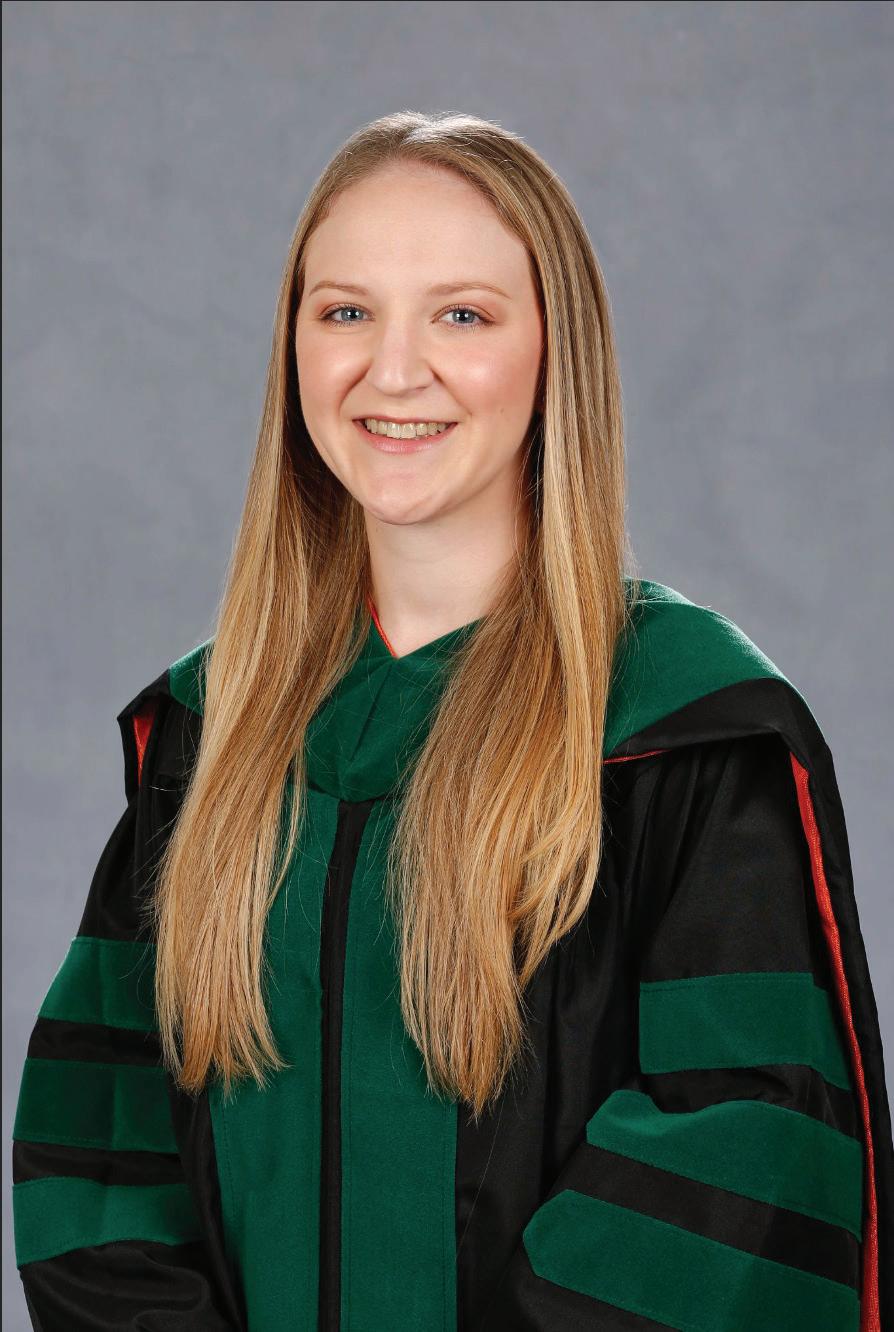
3 minute read
Alumna Feature: Dr. Sabrina Taldone
Alumna Feature:
Sabrina Taldone, MD, MBA
Advertisement
Dr. Taldone is a triple ‘Cane, having earned her undergraduate, MD, and MBA degrees at the University of Miami. She completed her internal medicine residency at Jackson Memorial Hospital and served as Chief Resident in the 2018-2019 academic year. Dr. Taldone is now an Assistant Professor at the University of Miami Miller School of Medicine, serving as a director of the Medicine as a Profession course for medical students and one of the Associate Program Directors of the Internal Medicine Residency Program.
What is your current area of practice? General Internal Medicine
Can you tell us about your involvement in DOCS? I volunteer at the Center for Haitian Studies (CHS) clinic on Monday nights and at Health Fairs, usually in the Final Doctor Evaluation (FDE) station.
How has DOCS evolved since your time as a medical student? One of the excellent aspects of the DOCS organization’s model is that there is a system in place for best practices knowledge to be transferred from outgoing student leadership to incoming student leadership. I have been most impressed by DOCS’ focus on connecting patients to longitudinal care through their Longitudinal Health Access Team (“patient navigation”) at Health Fairs. Furthermore, the CHS student-run clinic didn’t even exist until a few years ago. I enjoy seeing innovative, determined students work together to bring about positive, sustainable changes in the DOCS organization.
How has DOCS impacted your professional career? First and foremost, my experiences with DOCS opened my eyes to see that for so many members of the South Florida communities, our U.S. health care system falls short, leading to adverse health outcomes. The complex relationships between private, public, and government entities at a macro level had such a significant impact on the patient that I saw in front of me in a clinic or at a health fair. I wanted to become a part of the solution. This was one of the reasons I decided to pursue the MBA program. Currently, I serve as the Internal Medicine Medical Director for Population Health, where I work with an interdisciplinary team. DOCS taught me that teamwork makes the dream work!
What role do you feel DOCS plays in medical education? DOCS provides volunteer services to community members. Nevertheless, some of the best teachers are the patients we aim to serve. These patients help MS1 and MS2 students hone their empathy and communication skills, and they also provide a way for students to get to know more about the South Florida communities through their patients’ stories. Students in DOCS learn leadership skills, like time management and conflict resolution. Depending on what the leadership role is, students learn a variety of skills complementary to medicine, like public relations with community members, or even IT. Diverse student interests help students to realize how they can collaborate to create positive change.
How has your experience at clinics and/or health fairs changed during the COVID-19 pandemic? My experiences at clinics and health fairs have always been fulfilling. DOCS’ student leadership at CHS and health fairs have helped make the transition as smooth as possible. I am in awe of the resilience the student leaders exhibited in adapting to the COVID-19 changes; their passion for their patients is inspiring. At the CHS student-run clinic, they had to reduce the number of patients the students would see per night due to COVID precautions. Also, I saw more mental health illness (depression, anxiety) with my patients at CHS after the COVID-19 pandemic started in the U.S.








